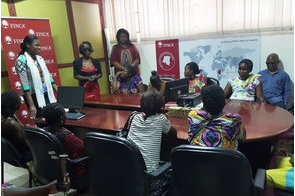World Bank launches collateral registry in Sierra Leone to boost access to finance

Summary
Sierra Leone is the fifth country in sub-Saharan Africa to establish a modern, online collateral registry with the support of IFC and the World Bank, following Malawi, Ghana, Liberia, and Nigeria.
The World Bank Group have announced the official launch of a collateral registry in Sierra Leone to help boost access to finance in the West African country, according to a statement on Tuesday.
The Washington D.C.-based multilateral lender said online registry will allow smaller businesses in the country – which lack traditional collateral such as land and buildings – to use movable assets such as machinery or equipment to access loans.
The registry will be hosted by the Bank of Sierra Leone. It was developed with the support of the World Bank Group and the UK’s Department for International Development (DFID).
“This collateral registry is an important financial and technological tool that will help small businesses in Sierra Leone unlock their assets to access the loans they need to grow,” said James Seward, Practice Manager for the World Bank Group’s Finance and Markets Global Practice. “It is also part of the World Bank Group’s strategy to support overall economic growth in Sierra Leone, and increased financial inclusion.”
Collateral registries are public databases that allow financial institutions to register their security interests in movable assets used by borrowers for loans. They also contain information on movable collateral belonging to potential borrowers. These registries enhance transparency in the credit system, and strengthen the financial infrastructure, according to the World Bank.
Sierra Leone is the fifth country in sub-Saharan Africa to establish a modern, online collateral registry with the support of IFC and the World Bank, following Malawi, Ghana, Liberia, and Nigeria. The registry went live in Sierra Leone in December 2016, and 72 registrations have already been entered in the system for various types of collateral.
Related
-
Capitis boosts SME, payroll lending with N360 million in Series A funding
EFInA 2020 survey report shows 27 per cent of Nigeria's 106 million adults have savings accounts and only 2 per cent have ...
-
IFC signs $1 million agreement with FINCA to expand microcredit in DRC
Under the agreement, FINCA will expand access to credit and digital financial services for low-income earners and ...
-
Airtel partners Standard Chartered to boost financial inclusion in Africa
Mobile banking transfers between Airtel Money and Standard Chartered are now live in Kenya, Tanzania, Uganda and Zambia.









